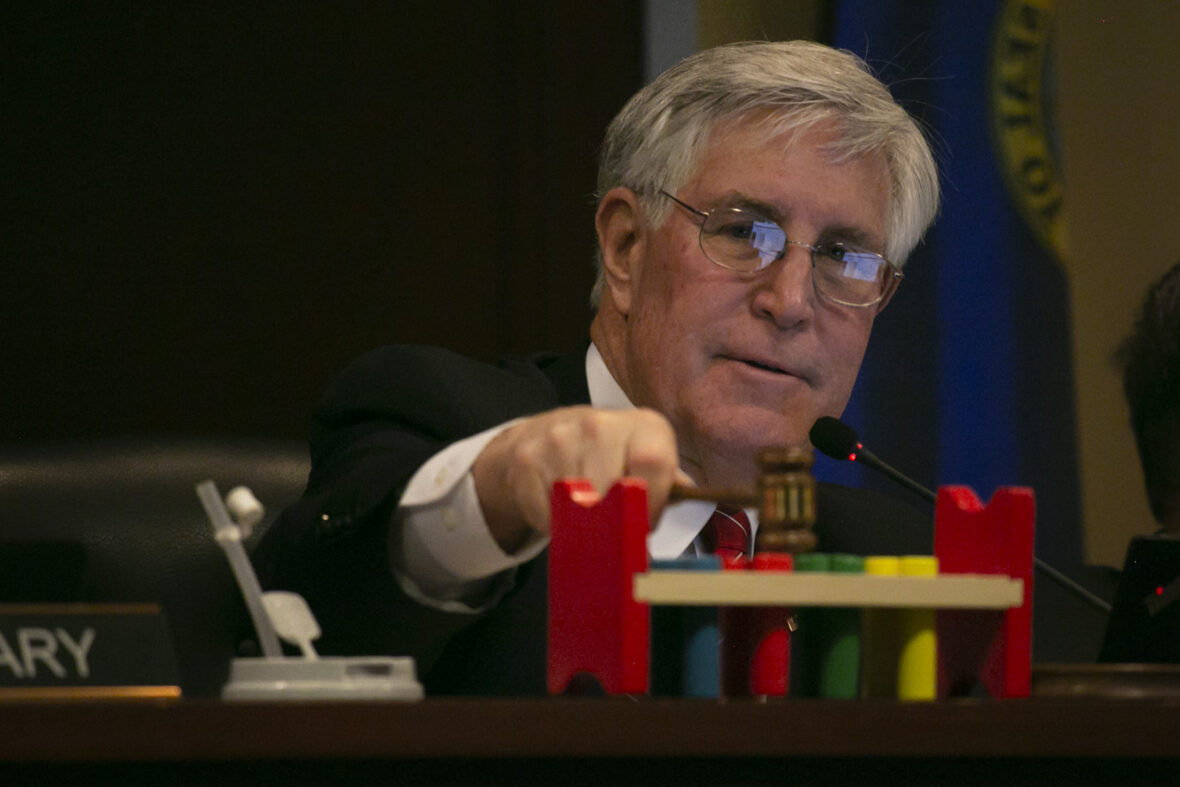It’s been a rogue nine days for the rogue House Education Committee.
First, the committee tried to ax all math, English and science academic standards, and eliminate certification rules for new teachers. The moves put the committee at odds with most of the education establishment — and on Wednesday, the Senate Education Committee overrode the House.
On Tuesday, House Education members grilled state superintendent Sherri Ybarra’s team over a plan to train school employees to help students who struggle with social-emotional issues. Social-emotional training has the support of Ybarra, Gov. Brad Little, the governor’s “Our Kids, Idaho’s Future” K-12 task force, and reigning Idaho Teacher of the Year Stacie Lawler, who has shared the powerful and intensely personal story of her family with lawmakers.
Increasingly — but not surprisingly — House Education is a policy island.
At least it shouldn’t be a surprise to anyone who pays attention to Statehouse politics.

The committee began flexing its muscles in 2019, most notably on the K-12 funding formula issue. House Education isn’t the only reason this Legislature is still trying to thread the needle on a rewrite in 2020. But House Education led the resistance, even staging a walkout to keep Committee Chairman Lance Clow from presenting a bill. (I’ll get back to that later.)
So when House Education was handed a unique opportunity to take another run at the standards — the science standards and the Common Core-aligned math and English standards — it should be no surprise that the committee jumped at it.
To no small degree, it made House Education the Idaho Freedom Foundation Education Committee. The libertarian-leaning foundation made Common Core repeal one of its big causes for 2020, and its talking points and the committee’s talking points are more or less indistinguishable.
Again, there’s some precedent. In June, the foundation started pushing back against diversity and inclusion programs at Boise State University; a month later, eight of House Education’s 15 members signed a letter urging new university President Marlene Tromp to ditch these programs. The letter’s author, Rep. Barbara Ehardt, R-Idaho Falls, is one of House Education’s most outspoken conservatives.
But if House Education is closely aligned with the Freedom Foundation, the same could easily be said of the House State Affairs Committee or the House Revenue and Taxation Committee. The House is a very conservative chamber, packed with a cadre of lawmakers who closely follow the foundation’s agenda. In this simple numbers game, these powerful committees are inevitably conservative. The notable exception is the budget-writing Joint Finance-Appropriations Committee, which remains stacked with moderate House Republicans.
That’s significant. The tension between JFAC and the policymaking committees is long-standing, and baked into the legislative structure. When Clow, R-Twin Falls, spoke to JFAC Wednesday, he made a point of admonishing budget-writers to stick to the numbers and let committees like his handle the policy end of the equation.
Maybe that sounds theoretical, but it certainly isn’t. It comes to a head when the Legislature considers proposals such as social-emotional training. JFAC very well could fund this new $1 million program, as Little and Ybarra have requested. But House Education is making clear that it wants a say in the policy end. Like that or not, that is clearly within its scope.
But even in a system built on checks and balances, optics and tone matter. House Education has a reputation as a tough audience, and it’s not unfair. I’ve heard more than one education leader talk, albeit privately, about the committee’s rough-and-tumble persona. The debate between committee members often has a sharp edge — especially in contrast to the politically diverse but consistently collegial Senate Education Committee.
(Full disclosure here: The normally genial and media-friendly Clow took Idaho Education News to task at the start of Wednesday’s House Education meeting. Clow criticized our Tuesday article on social-emotional training, which pointed out that three committee members left in the middle of the presentation.)
But at the end of the day — or the end of this 2020 session — does House Education Island exist in isolation?
After Senate Education made short work of education rules Wednesday afternoon, reversing the House’s decision to dump academic standards and teacher certification requirements, House Education Vice Chairman Ryan Kerby took a decidedly measured tone.

Kerby, R-New Plymouth, isn’t one to mince words. But he pointed out, accurately, that several senators said they want to rewrite Idaho Core Standards, incrementally. And he predicted the House and Senate would find common ground. “There’s a lot of talk going on,” he said.
Seconds later, Senate Education Vice Chairman Steven Thayn joined the interview. Thayn, R-Emmett, is no fan of Common Core, and he credited his legislative District 8 colleague, Stanley Republican Rep. Dorothy Moon, for leading House Education’s pushback. “She’s helped bring this to a head.”
A ferry to and from House Education Island?
Talk about going rogue.
Each week, Kevin Richert writes an analysis on education policy and education politics. Look for it every Thursday.
